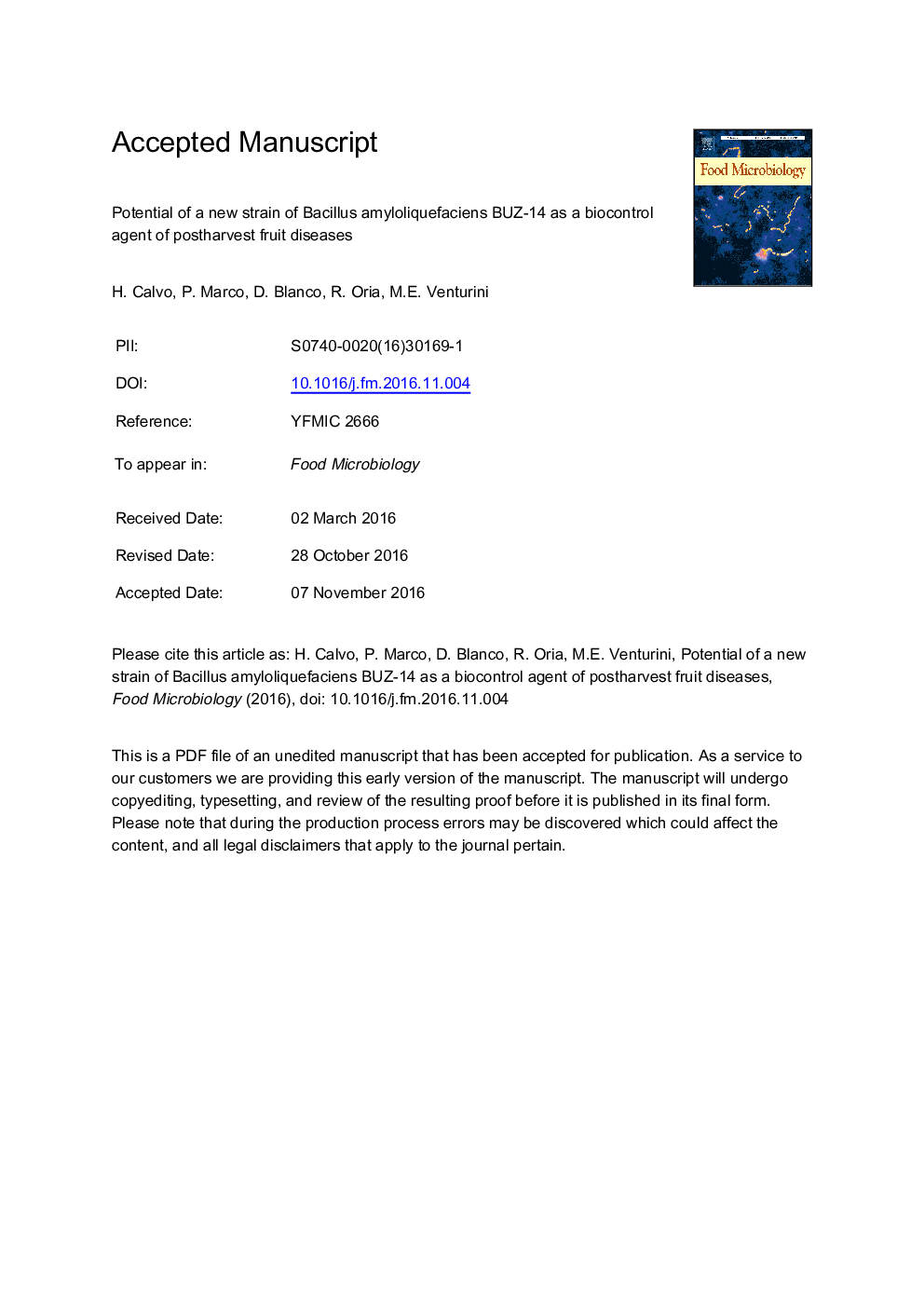| Article ID | Journal | Published Year | Pages | File Type |
|---|---|---|---|---|
| 5740174 | Food Microbiology | 2017 | 109 Pages |
Abstract
The biocontrol potential of the Bacillus amyloliquefaciens strain BUZ-14 was tested against the main postharvest diseases of orange, apple, grape and stone fruit. After characterizing the temperature and pH growth curves of strain BUZ-14, its in vitro antifungal activity was determined against Botrytis cinerea, Monilinia fructicola, M. laxa, Penicillium digitatum, P. expansum and P. italicum. Subsequently, in vivo activity was tested against these pathogens by treating fruit with cells, endospores and cell-free supernatants. The in vitro results showed that BUZ-14 inhibited the growth of all the pathogens tested corresponding to the least susceptible species, P. italicum, and the most susceptible, M. laxa. In vivo tests corroborated these results as most of the treatments decreased the incidence of brown rot in stone fruit from 100% to 0%, establishing 107 CFU mLâ1 as the minimum inhibitory concentration. For the Penicillium species a preventive treatment inhibited P. digitatum and P. italicum growth in oranges and reduced P. expansum incidence in apples from 100% to 20%. Finally, it has been demonstrated that BUZ-14 was able to survive and to control brown rot in peaches stored at cool temperatures, making it a very suitable biocontrol agent for application during the post-harvest storage and marketing of horticultural products.
Related Topics
Life Sciences
Agricultural and Biological Sciences
Food Science
Authors
H. Calvo, P. Marco, D. Blanco, R. Oria, M.E. Venturini,
